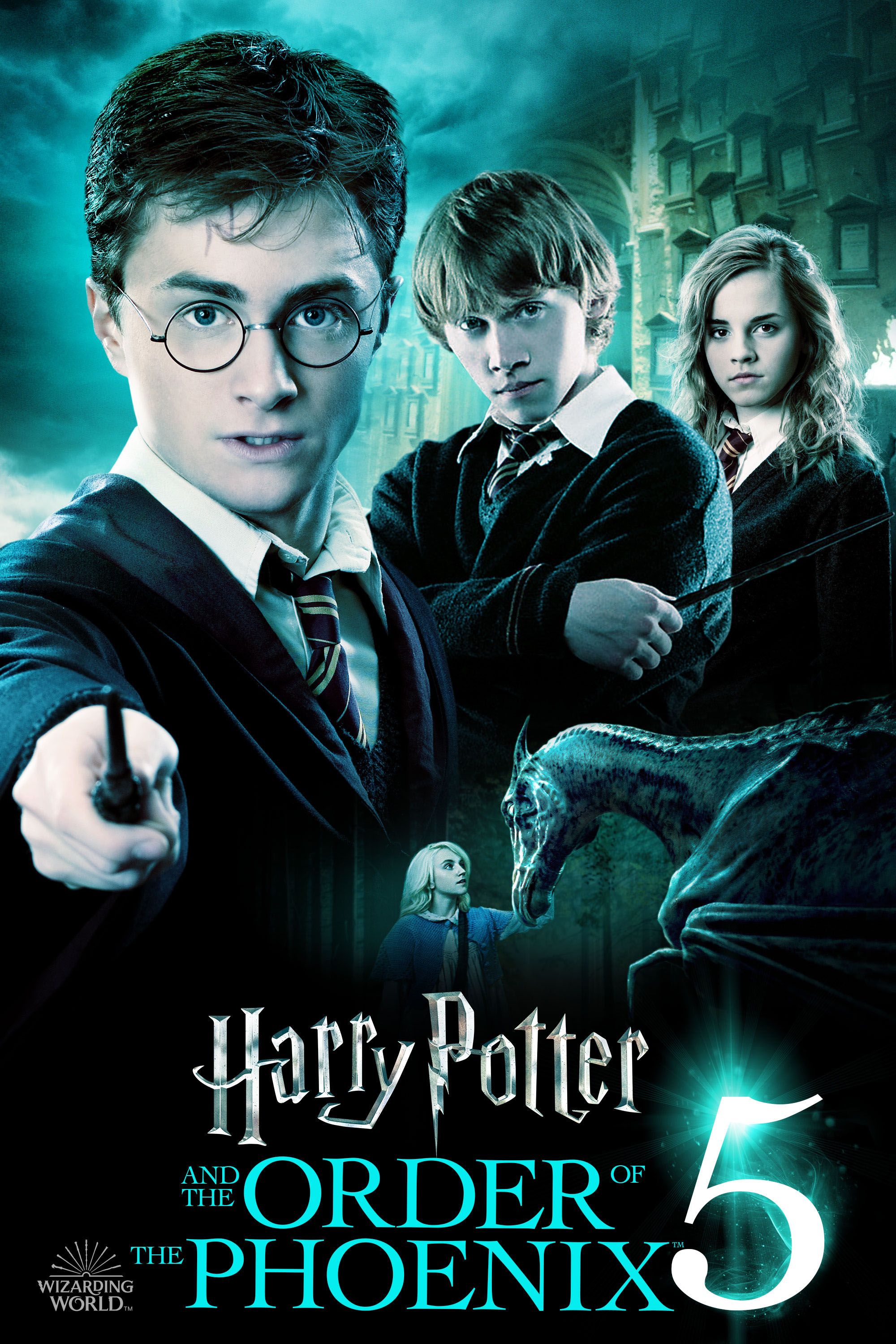
Directed by David Yates, "Harry Potter and the Order of the Phoenix" propels the series into a realm of political intrigue, rebellion, and emotional tumult. Adapted from J.K. Rowling's fifth novel, the film explores Harry's battle against skepticism, the rise of the dark forces, and the formation of the secret society known as the Order of the Phoenix.
Darker Tone and Political Intrigue: The film takes a darker turn as the wizarding world grapples with the return of Lord Voldemort. A sense of political intrigue permeates the narrative as the Ministry of Magic attempts to suppress the truth about Voldemort's return, painting Harry as a pariah. The film masterfully navigates the complexities of propaganda and skepticism in the face of an impending threat.
Educational Rebellion and Dumbledore's Army: Harry, frustrated by the lack of information and training provided by the Ministry, takes matters into his own hands. The formation of Dumbledore's Army showcases a rebellious spirit among Hogwarts students, as they unite to learn and defend themselves against the dark forces. This theme of resistance becomes a central motif in the film.
New Characters and Expanding Horizons: "Order of the Phoenix" introduces new characters, such as Luna Lovegood and Dolores Umbridge, expanding the narrative and character dynamics. Imelda Staunton's portrayal of Umbridge brings a chilling authoritarian presence to Hogwarts, creating a stark contrast to the camaraderie seen in previous films.
Visions and Voldemort's Influence: Harry's connection with Lord Voldemort deepens as he experiences visions of the dark wizard's thoughts and emotions. This psychic link adds an element of psychological intensity, highlighting the toll that opposing the dark forces takes on Harry's mental and emotional well-being.
The Prophecy and Destiny: The revelation of the prophecy concerning Harry and Voldemort adds layers of complexity to the overarching narrative. Themes of destiny, sacrifice, and the burden of leadership come to the forefront as Harry grapples with his role in the inevitable confrontation with the dark lord.
Loss and Emotional Weight: The film doesn't shy away from portraying loss and the emotional toll of the ongoing war. The death of a beloved character adds a poignant layer to the narrative, reinforcing the high stakes faced by Harry and his allies.
Visual Style and Cinematic Flair: David Yates brings his distinct visual style to the series, with dynamic camera work and a focus on character expressions. The use of muted tones and darker aesthetics mirrors the somber mood of the narrative, emphasizing the gravity of the challenges faced by the characters.
Evolution of Characters and Performances: The performances in "Order of the Phoenix" showcase the evolution of the main cast. Daniel Radcliffe delivers a nuanced portrayal of Harry as he grapples with inner turmoil, and Helena Bonham Carter's brief but memorable appearance as Bellatrix Lestrange adds a jolt of madness to the proceedings.
Conclusion: "Harry Potter and the Order of the Phoenix" marks a crucial turning point in the series, embracing a darker narrative tone and delving into themes of resistance, rebellion, and the weight of destiny. As the wizarding world teeters on the brink of all-out war, Harry and his friends find themselves at the center of a conflict that will define their roles in the battle against the forces of darkness. The film sets the stage for the epic conclusion that awaits in the final chapters of the Harry Potter saga.
 |
| Harry Potter and the Order of the Phoenix |
